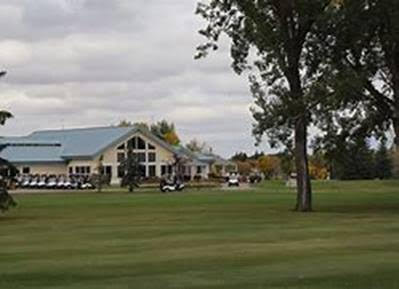
After a presentation by the Royal Regina Golf Club’s general manager and an at times heated debate, a tax break axed by council earlier this year was reinstated during budget deliberation.
“I get the impression that this was an attempt to quickly pass this change … as there appeared to be limited research or investigation into the matter before it was voted upon,” general manager Ryan Pollock said in reference to Sept. 29 city council meeting.
During his plea to council, Pollock argued that the Royal Regina Golf Club got a bad wrap when it was unfairly described as a private club with lucrative membership fees. He attempted to set the record straight, telling council that it is a not-for-profit club that directs any left-over revenue into the maintenance of the course.
He emphasized the course is open to any member of the public, has a reduced membership fee for people aged 19 to 36 years of age, and member fees work on a sliding scale.
“The additional tax would in fact be a hardship on our club,” Pollock told council, adding revenue was “modest” in 2018 and 2019.
His presentation convinced Coun. Bob Hawkins (Ward 2), to bring forward an amendment to the city’s operating budget, which would see the reinstatement of a golf course sub-class that reduces the amount of municipal taxes private golf courses pay as a way to level the playing field with city-owned golf courses that pay no property taxes.
The subclass was created in 2001 at the request of the Royal Regina Golf Club, according to city manager Chris Holden, when the course experienced flooding due to overflow from Wascana Lake. At the time, it was a lever to help with expenses related to the course’s location on the flood plain, one Holden said it wouldn’t necessarily recommend if a similar situation arose today.
“The Royal Regina Golf Club has taken what is really swamp land and turned it into a productive piece of recreational land and done it in an environmentally friendly manner,” Hawkins said. “That is a very significant contribution to Regina and one that we should be careful not to disrupt.”
But others disagreed. Coun. Andrew Stevens said he wasn’t sold that the hardship caused by the elimination of the tax break would be as significant as Pollock says.
Stevens argued that if the club is a non-profit offering important services to the community, it could apply for tax relief through the city’s Community Investment Grants Program instead. He highlighted the fact that subclasses don’t exist for things like day cares and recreation facilities and said the city shouldn’t play favourites.
“I know this isn’t a lot of money but it is a principle, we should be very sparing with how we are using this particular tax lever,” he said.
The tax relief offered by the sub-class designation saves the club $17,000 in property taxes a year. Last year, it still paid more than $77,000 in municipal taxes.











